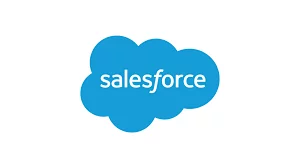Buddhist wisdom, rooted in its profound teachings encompassing compassion, mindfulness, patience, non-attachment, wisdom, and gratitude, has evolved beyond its spiritual origins. It has found fertile ground for application and innovation in unexpected domains, notably in the realm of technical support. This article will embark on an exploration of real-world instances where Buddhist principles have been earnestly adopted by some of the globe’s most celebrated corporations. Through these stories, we will uncover the profound impact these principles have had in revolutionizing their approach to technical support.
These principles, initially designed to guide individuals on a path to spiritual enlightenment and inner peace, have surprisingly found relevance in the fast-paced, technical landscapes of modern corporations. As we delve into the following examples, we will witness how these principles have been incorporated into the very fabric of renowned companies, catalyzing transformative shifts in their approach to technical support.
By exploring these real-life narratives, we hope to not only appreciate the adaptability of Buddhist wisdom but also gain insights into how its universal truths can enhance our daily lives, both personally and professionally. The fusion of ancient wisdom with contemporary challenges exemplifies the enduring relevance and impact of these principles on the human experience.
Benefits of Using Buddhist Principles in Technical Support:

- Elevated Empathy and Customer Satisfaction: At the heart of Buddhist principles lies compassion and empathy, qualities that, when applied to technical support, lead to profoundly improved customer experiences. Support teams trained in these principles become adept at understanding and empathizing with customers’ emotions and challenges. This goes beyond problem resolution; it creates genuine connections with customers, resulting in higher levels of satisfaction, and transforming support interactions into memorable experiences.
- Boosted Customer Loyalty and Trust: The principle of non-attachment, fundamental to Buddhism, encourages support agents to prioritize the well-being of customers over immediate outcomes. This approach builds trust as customers recognize a company genuinely committed to serving their needs. Trust is the bedrock of customer loyalty, resulting in repeat business and enthusiastic referrals. When customers trust a company to prioritize their best interests, it creates an enduring bond that competitors find challenging to replicate.
- Effective Troubleshooting and Transparent Communication: Mindfulness and patience, intrinsic to Buddhist principles, serve as invaluable tools in technical support. Support agents approach intricate technical challenges with poise and precision. The outcome? Problems are resolved swiftly and effectively, reducing customer frustration. Additionally, transparent communication, a tenet of these principles, keeps customers informed. Customers appreciate being part of the resolution process, enhancing their confidence in the support provided.
- Continuous Enhancement and Positive Company Culture: Buddhism’s emphasis on continual self-improvement seamlessly extends to the workplace. Support teams driven by this philosophy consistently seek customer feedback. They identify areas for refinement and, in doing so, cultivate a dynamic and customer-centric culture. This isn’t just about solving issues; it’s about an organization’s unwavering commitment to improving the customer experience. Employees are motivated as they witness their contributions directly leading to happier customers and a more vibrant work environment.
- Positive Brand Reputation and Stress Mastery: Compassionate technical support goes beyond simply solving problems; it enhances a company’s reputation. Customers perceive the company as not just competent but deeply empathetic and customer-focused. A strong, positive brand image ensues, attracting new customers and solidifying the loyalty of existing ones. Meanwhile, mindfulness techniques learned from Buddhism equip support agents to handle stress. They remain calm and composed, effectively managing the challenges that come their way.
- Ethical Alignment and Sustainable Practices: Integrating Buddhist principles underscores a company’s commitment to ethical values and social responsibility. It compels organizations to consider their environmental impact and social contributions. This alignment with ethical values resonates with customers who prioritize companies that share their moral compass. It sends a clear message that the company isn’t just focused on profit; it’s dedicated to making a meaningful, positive impact on the world.
Principles that Companies Have Embraced From Buddhism
- Compassion – Apple Inc.

Compassion lies at the core of Apple Inc’s philosophy, echoing the wisdom of its co-founder, Steve Jobs, who once famously stated, “You’ve got to start with the customer experience and work backward to the technology.” Apple’s commitment to compassionate technical support has led to transformative results. Apple’s support agents have evolved beyond mere troubleshooters; they have become empathetic problem solvers. When customers encounter critical software issues, Apple’s support personnel step into the role of compassionate caregivers. They don’t just address technical glitches; they listen with empathy, validating the customer’s frustration and anxiety. In the spirit of compassion, they offer soothing reassurance, using phrases like, “We understand how crucial this is to you, and we are fully committed to resolving it promptly.”
2. Mindfulness – Microsoft

Satya Nadella, the visionary CEO of Microsoft, has eloquently conveyed the importance of mindfulness in technical support. He astutely remarked, “Our customers don’t just buy our products; they invest their trust in us.” Microsoft’s support agents have wholeheartedly embraced this philosophy. When faced with complex technical challenges, they use mindfulness as their guiding compass. They engage customers with thought-provoking questions, meticulously analyze issues, and present guidance one mindful step at a time. Their language reflects this mindfulness, often stating, “Let’s proceed methodically, ensuring that you are comfortable with each step.”
3. Patience – Amazon

Jeff Bezos, the mastermind behind Amazon’s global success, once espoused the philosophy that “we see our customers as invited guests to a party, and we are the hosts.” Amazon’s commitment to patient technical support seamlessly aligns with this ethos. When a customer grapples with issues like delayed deliveries or product concerns, Amazon’s support agents exercise unwavering patience. They calmly explain the intricacies of the situation, recognizing that patience is a soothing balm for customer frustration. They employ phrases such as, “We genuinely appreciate your patience throughout this process. Let’s collaborate to ensure that you have the best possible experience.”
4. Non-Attachment – Google

Larry Page and Sergey Brin, the co-visionaries behind Google, have long advocated non-attachment to outcomes. Google’s technical support teams have earnestly internalized this principle. When confronted with issues that defy instant resolution, they uphold the tenet of non-attachment. They assure customers, “Our dedication to your satisfaction remains unwavering. We will persistently work on this until it is completely resolved, always with your best interests in mind.”
5. Wisdom – Tesla

Elon Musk, the trailblazing CEO of Tesla, has consistently championed the pursuit of wisdom in problem-solving. Tesla’s approach to technical support reflects this commitment. When a Tesla owner encounters recurring technical glitches, the support team springs into action with wisdom as their guiding light. They embark on a rigorous quest to uncover the root causes of the issues. The solutions they provide go beyond mere patches; they aim to eliminate issues at their source. The Tesla support team assures their customers, “Our objective is not just to resolve this issue but to safeguard your seamless experience with your Tesla.”
6. Gratitude – Zappos

Tony Hsieh, the visionary former CEO of Zappos, firmly believed in the power of gratitude to build lasting customer relationships. Zappos’ support agents have translated this belief into action. After adeptly resolving a customer’s concerns, they go above and beyond by expressing heartfelt gratitude. They convey phrases such as, “We are sincerely grateful for your loyalty and trust. Your choice of Zappos is deeply appreciated,” fostering an indelible connection between the customer and the brand.
7. Empathy – IBM

IBM, with its storied history in the tech industry, places a strong emphasis on empathy in its approach to technical support. As articulated by former CEO Ginni Rometty, the company’s perspective on value is rooted in sharing knowledge and understanding customer challenges.
IBM’s support agents go above and beyond mere problem-solving. They immerse themselves in the customer’s technical difficulties, acknowledging the frustration and stress that often accompany technical issues. This empathetic approach fosters a deeper connection between IBM and its customers, who appreciate not only the solutions but also the emotional support.
These support agents convey sentiments such as, “We understand how frustrating technical issues can be. Let’s work together to find the best solution for you.” By doing so, they create an environment where customers feel heard and valued, making the technical support experience more than just a transaction.
8. Flexibility – Netflix

Flexibility is a key pillar of Netflix’s technical support strategy, aligning with the vision of co-founder Reed Hastings, who understands that customer needs are diverse, and technical issues can vary widely. Therefore, the company’s support agents exhibit adaptability in addressing these issues.
When a Netflix subscriber encounters difficulties with their streaming service, support agents don’t adhere to a one-size-fits-all approach. Instead, they display flexibility by tailoring solutions to each customer’s unique situation. Whether it’s resolving streaming quality problems, account issues, or content inquiries, Netflix support aims to accommodate and provide personalized assistance.
Support agents often express their commitment with phrases like, “We want to ensure your Netflix experience is seamless. Let’s explore various options that work best for you.” This approach underscores Netflix’s dedication to delivering not just content but also a customer-centric support experience.
9. Transparency – Twitter

Transparency is a core value in Twitter’s technical support philosophy. CEO Jack Dorsey once remarked, “The only way to do this is by being open and honest.” Twitter support agents embrace this philosophy by providing clear and transparent information about technical issues. They often communicate, “We believe in keeping you informed. Here’s what’s happening and how we’re working to resolve it.”
This commitment to transparency builds trust and reassures users that Twitter is actively addressing their concerns.
10. Continual Improvement – Cisco

Cisco Systems, a leader in networking and IT solutions, recognizes the significance of continual improvement. Former CEO John Chambers‘s insight that self-disruption is essential underscores Cisco’s approach to technical support.
Cisco’s technical support teams are dedicated to evolving and enhancing the customer experience. They actively seek feedback from users to identify pain points and areas for improvement. This feedback-driven approach fuels a culture of continuous enhancement, where support agents are always striving to make the customer experience better.
Support teams often convey, “We’re always striving to make your experience better. Your feedback matters, and we’re listening to learn and grow.” This commitment to improvement ensures that Cisco’s technical support remains agile and responsive to the evolving needs of its users.
11. Community Building – Reddit

Reddit, renowned for its diverse and vibrant communities, extends its support philosophy beyond issue resolution to community building. Support agents on Reddit actively engage with users, recognizing that their role goes beyond addressing technical problems.
While they certainly address issues that arise, Reddit’s support agents also foster a sense of belonging and collaboration within the platform’s communities. They encourage users to share their insights and questions, emphasizing that they are partners in making Reddit a better place for everyone.
Support agents often express their dedication by saying, “We’re here to help build this community together. Your insights and questions are vital in making Reddit a better place.” This approach reinforces the idea that Reddit’s support is not just about fixing problems but also about creating a positive and inclusive environment.
12. Sustainability – Apple (Again)

In addition to its commitment to compassionate support, Apple, led by Tim Cook, has made sustainability a core principle. The company firmly believes in taking action to combat climate change, rather than engaging in debates about it.
Apple’s approach to sustainability extends to its technical support operations. Support agents are trained to convey that their role is not limited to fixing devices; it’s also about ensuring a sustainable future. They emphasize the importance of reducing environmental impact through responsible product usage and disposal.
Support agents often communicate, “Our support is not just about fixing devices; it’s about ensuring a sustainable future. Let’s work together to reduce our environmental impact.” This reinforces Apple’s dedication to not only meeting customer needs but also aligning those efforts with broader environmental goals.
13. Innovation – Amazon Web Services (AWS)

Amazon Web Services, the cloud computing giant, exemplifies innovation in technical support. AWS’s approach is guided by founder Jeff Bezos‘ belief that “innovation is key to long-term success.” When users face complex technical challenges, AWS support agents don’t just offer conventional solutions. They often say, “Let’s explore innovative approaches to optimize your cloud infrastructure.” This innovation-driven support not only resolves immediate issues but also enhances users’ cloud capabilities.
14. Inclusivity – Google Workspace (formerly G Suite)

Google Workspace, known for its collaborative tools, champions inclusivity in technical support. Drawing inspiration from Google’s commitment to diversity, support agents prioritize inclusivity by providing assistance in multiple languages and accommodating diverse user needs. They affirm, “We’re here to ensure everyone can fully utilize Google Workspace, regardless of their background or language preference.” This inclusive approach fosters a global user base and promotes accessibility.
15. Honesty – Facebook (Meta Platforms, Inc.)

Meta Platforms, Inc. (formerly Facebook), recognizes the power of honesty in technical support. CEO Mark Zuckerberg has emphasized that “being authentic is more important than being perfect.” Facebook’s support agents embody this principle by candidly addressing technical issues. They often say, “We value your trust, and we’ll always provide honest and transparent information about any problems you encounter.” This honesty cultivates a culture of trust among users.
16. Personalization – Spotify

Spotify, the music streaming giant, has made personalization a cornerstone of its technical support. Inspired by the belief that “music is personal,” support agents personalize their interactions with users. They might say, “We understand that your music experience is unique. Let’s tailor our assistance to your specific preferences and needs.” This personalized approach resonates with users and strengthens brand loyalty.
17. Simplicity – Zoom Video Communications

Zoom Video Communications, the video conferencing platform, prioritizes simplicity in technical support. Taking inspiration from the motto “simplify your video communications,” Zoom support agents ensure that users find support easy to access and understand. They often communicate, “We’re here to simplify your experience. Let’s break down complex technical issues into straightforward solutions.” This simplicity-driven support enhances user satisfaction.
18. Integrity – Salesforce

Salesforce, an industry leader in customer relationship management (CRM), places a paramount emphasis on the principle of integrity within its technical support operations. This commitment to integrity is deeply ingrained in the company’s culture and is guided by the visionary leadership of CEO Marc Benioff, who holds the belief that “trust is the highest value.” Within Salesforce’s support ecosystem, integrity is not merely a buzzword but a fundamental pillar upon which every interaction is built.
Support agents often express this commitment in their interactions with phrases like, “Your trust in Salesforce is paramount. We’re committed to upholding the highest standards of integrity in all our support interactions.” These aren’t empty words; they represent a core value that Salesforce takes seriously. This dedication to integrity goes beyond mere words; it’s reflected in actions and decisions. Whether it’s handling sensitive customer data, resolving technical issues, or providing guidance, Salesforce support agents prioritize ethical conduct.
19. Positivity – Airbnb

Airbnb, the renowned platform for lodging and travel experiences, exemplifies positivity in its technical support. Support agents are inspired by Airbnb’s mission to “create a world where anyone can belong anywhere.” They consistently convey a positive outlook, encouraging users with messages like, “Let’s approach this challenge positively, working together to ensure you have a memorable experience.” This unwaveringly positive approach contributes to enhancing the overall experience for Airbnb users.
20. Resilience – Adobe

Adobe, a pioneering force in creative software, wholeheartedly embraces resilience within its technical support ecosystem. Motivated by Adobe’s overarching mission to “transform the world through digital experiences,” support agents embody resilience when confronting intricate challenges. They frequently convey the reassuring message, “There’s no obstacle too great to conquer. Together, let’s steadfastly pursue a solution that empowers your digital creativity.” This resilient stance empowers users to surmount hurdles on their creative journeys with unwavering confidence and support.
Conclusion:
These examples offer a holistic understanding of how empathy, flexibility, transparency, continual improvement, community building, and sustainability have become integral components of the technical support strategies employed by renowned companies. Beyond simply resolving technical issues, these principles have profoundly enhanced customer experiences, nurtured trust, and aligned these corporations with the values of their customers. These illustrative examples serve as compelling sources of inspiration for companies worldwide that aspire to elevate their technical support services into comprehensive and meaningful customer experiences.
FAQs on Buddhism in Technical Support:
What benefits can companies expect from embracing these principles?
Embracing these principles can lead to enhanced customer satisfaction, increased customer loyalty, improved brand reputation, and a more customer-centric approach to business operations.
Can small and medium-sized businesses (SMBs) adopt these principles effectively?
Absolutely. These principles are not limited to large corporations and can be scaled to suit the needs and resources of SMBs. SMBs that prioritize these values can still create meaningful and impactful technical support experiences for their customers.
Are there any challenges in implementing these principles in technical support?
Challenges may include the need for cultural shifts within organizations, ensuring consistency in applying these principles, and providing ongoing training for support agents. However, the long-term benefits often outweigh the initial challenges.
Can these principles be applied in both online and offline technical support scenarios?
Yes, these principles can be applied in both online and offline support contexts. Whether through digital channels or in-person interactions, companies can foster empathy, transparency, and other values to enhance customer experiences.



